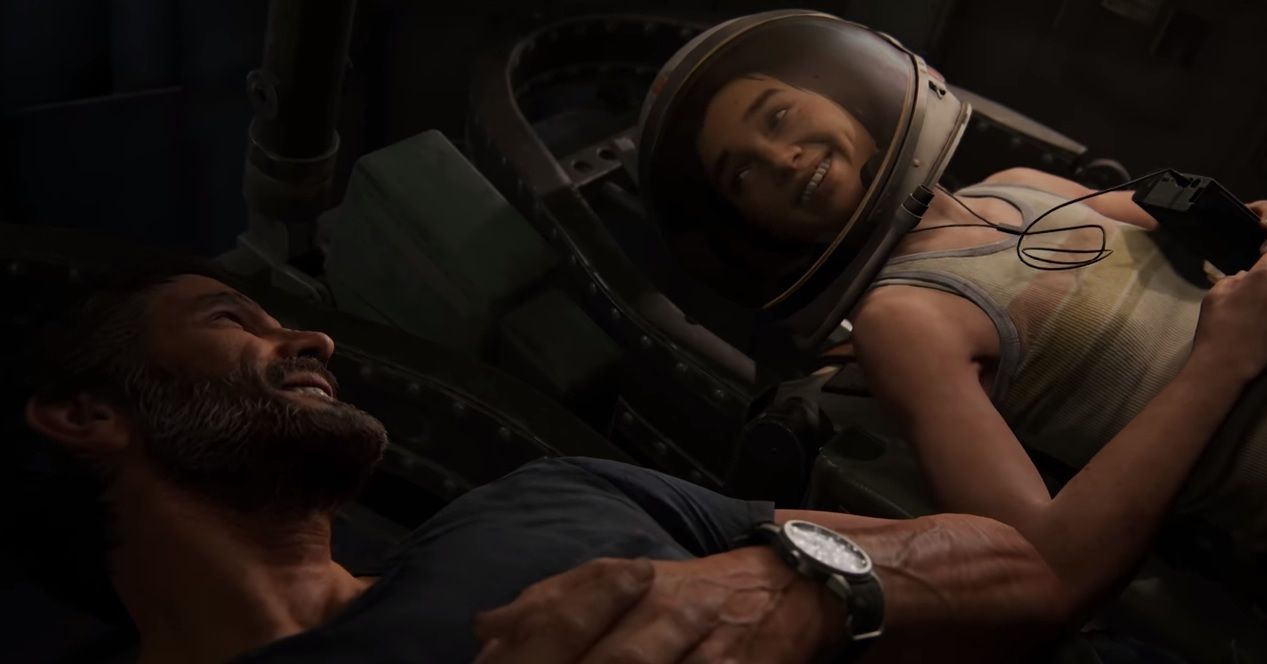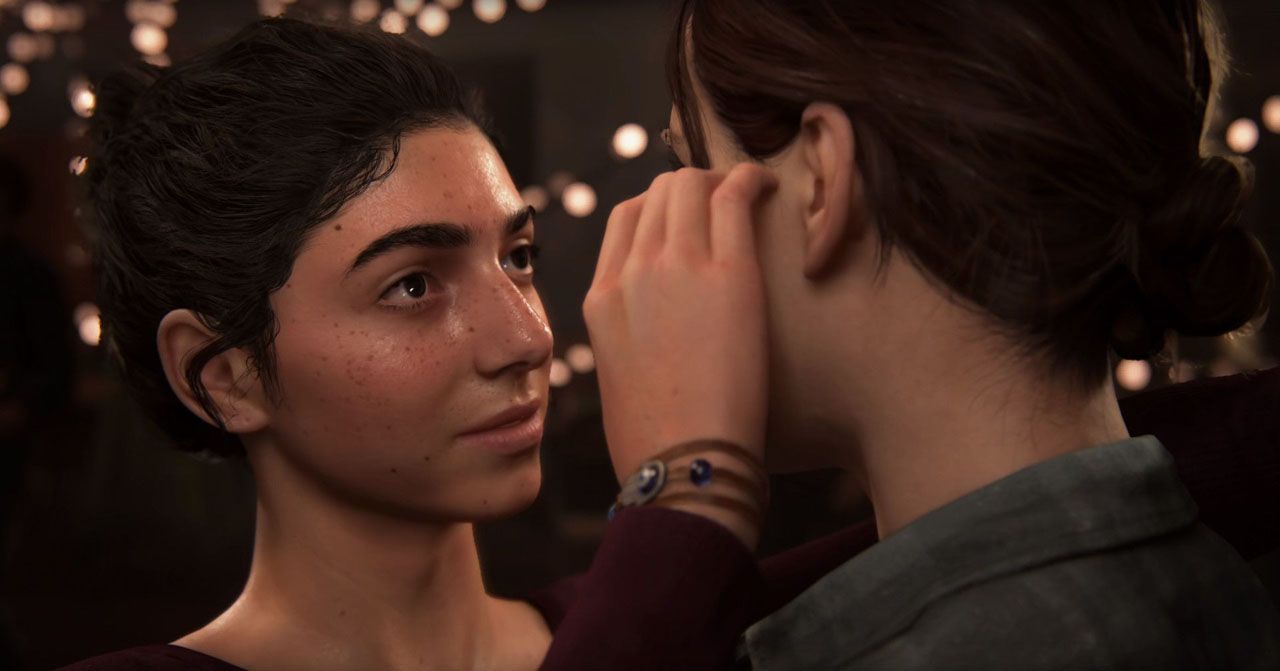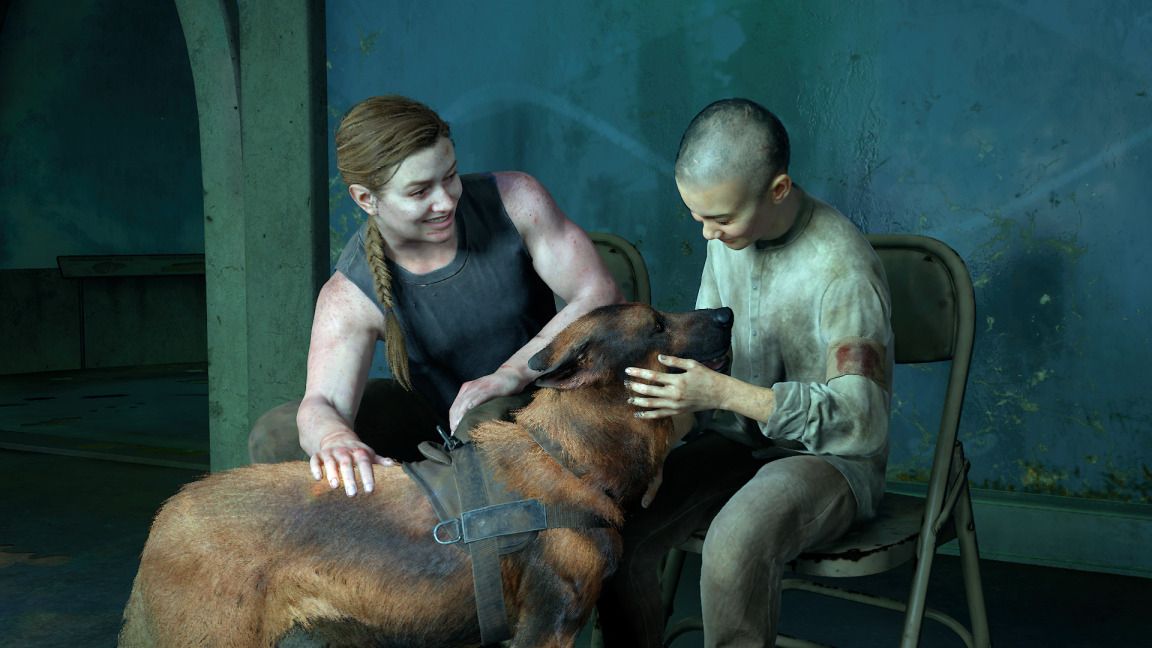Spoiler Warning: This article does mention some story moments from The Last of Us Part 2. We'd recommend coming back to this piece after playing through the full game.
Like countless other players who have completed The Last of Us Part 2, my emotions were in tethers by the end. Having spent almost 40 hours exploring its beautiful but forbidding world, capturing infinite pictures in photo mode, and absorbing the unyieldingly intense narrative, I felt like I needed a very long vacation that included a very large, free bar. Without a doubt, The Last of Us Part 2 is designed to make you feel strongly about its actions and storyline, so if you come away from it with feelings of disgust, sadness, anger, regret, or admiration, then Naughty Dog has ultimately fulfilled its purpose. There are no heroes or villains in Part 2; no one truly “wins.” But what I did discover, beneath the rage and revenge, is that love is the anchor in which those intense feelings have grown from. So in essence, The Last of Us Part 2 is at its core an unconventional love story about the things you will do because of it.
I would be lying if I said that I didn't have an intense dislike towards Abby when that scene happened with Joel. Initially, I felt sick, then angry, and then a feeling that I hadn't quite counted on, and that's wanting to understand Abby's actions. What could possibly drive someone to act out a horrendous crime like this? At the time, Abby was someone I had absolutely no backstory context on, other than that she belonged to the WLF and she was out for Joel's blood. Instead of taking Abby's actions as "this is a bad person; I hate her and want her dead", I wanted to know what warranted this profound fury and further along, I got my answer. Abby's emotional anchor in The Last of Us Part 2 is love: the adoration she had for her father who died at the hands of Joel. Without this initial feeling, Abby would never have taken her journey, nor would it have produced her deep-seated response of rage and revenge.
[pullquote]"Abby's emotional anchor in The Last of Us Part 2 is love: the adoration she had for her father who died at the hands of Joel."[/pullquote]
It was easy for me to apply empathy once I found out what spurred on Abby's motivation. Here was a young woman who had witnessed the demise of her father, a brilliant doctor whose passion and love for humanity drove him to want to do good things, but this was cut short by Joel's desire to keep the one thing he loved as well. From that, Abby built her entire love for her father around retribution and the flip side of that love coin - obsession. Neil Druckmann from Naughty Dog had said that The Last of Us was built around love, and Part 2 was built around hate, but I don't agree with that at all. The Last of Us Part 2 shows us (in my opinion) the lengths we go for love, what actions it will drive us toward, and--in the end--is revenge worth losing love for?
This analogy can also be reproduced with Joel. I've listened to many people discuss that what Joel did at the end of The Last of Us with Ellie was an unforgivable act of selfishness and, in part, they are absolutely correct. But what some people tend to forget about Joel is that he is a flawed person, just like the rest of the characters and also us, the players. When Joel lost his daughter Sarah, his whole world fell apart. He struggled with living and had essentially lost his purpose; that was until he met Ellie. Ellie gave Joel that unconditional love of what being a father was back again and in his mind, he'd move heaven and earth to never lose it again. The idea that another "daughter" could be ripped from his life again sent Joel over the edge. So he made the only decision he could, and that was to take Ellie away and protect her at all costs; even at the cost of humanity.
I think you would need to have a heart of stone not to understand why Joel made this choice, or at the very least, aren’t as truthful with your own real-life decisions as you initially thought. Humans, by default, are fragile creatures prone to ego, self-centeredness, and an innate desire to self-preserve, providing a cocktail of ingredients that are later mixed in with learned behaviors like love, kindness, and empathy. At many points in our lives, we choose or will eventually choose our own selfishness over what's right for the greater good - this is part of the natural mechanic that makes up the human complexity. Granted this may not be as dramatic or as horrific as Joel and Ellie's situation, but it still provides the same outcome. Our own desires and love for something (or someone) can outweigh what is perceived as technically the "right thing to do." More times than not, we will do it anyway regardless, because of our fear of loss and our need to love.
[pullquote]"The Last of Us Part 2 is at its core an unconventional love story about the things you will do because of it."[/pullquote]
There is a certain point in the original The Last of Us where young Ellie is chatting with Sam, and he asks her what she is most afraid of. Ellie replies "being by myself; I'm scared of ending up alone," and by the end of Part 2, this is exactly what happens to Ellie. Her lust for revenge blinded her initial deep-rooted fear of being left in a savage, loveless world on her own. She was so dazzled by wanting to get justice for Joel, that she forgot that there was still love to be found in Dina, who followed her with unchained and unconditional devotion. It took almost drowning Abby to make her see that this wasn't the path that she wanted to be on any longer. Killing Abby couldn't bring Joel back, and from seeing what killing Joel did to Abby, there certainly was no absolution from the heart wrenching pain and love that she still held passionately for Joel - the anchor that led her to where she now was - eventually broke through the blinding red mist.
Probably for me, the most surprising relationship that I took away from The Last of Us Part 2 was that between Abby and Lev. Here are two enemies who have relentlessly fought against each other's camps for years without really questioning it. We soon find out that Lev has led a very sheltered life; his naivety and innocence are mostly down to the harsh and regimented environment of the devout Seraphites. But even though he is trained to kill the WLF, which Abby is a part of, he helps her due to questioning the Seraphite’s traditions. The two form a unique and dependent relationship; they put aside their differences initially to help Lev's sister, but it soon develops into a beautiful kinship. Even though Abby's intentions stem from her redemption arc, she learns to love and care for Lev as if he were her own child. Part of this may come from seeing herself in Lev when she was younger and having lost her father, as Lev lost his mother.
[pullquote]"Even though Abby's intentions stem from her redemption arc, she learns to love and care for Lev as if he were her own child."[/pullquote]
As much as The Last of Us Part 2 surrounds itself in the neverending cycle of violence through its narrative and gameplay, I believe that Naughty Dog left it up to the players to find out what the real, true message of this sequel was. For me, it couldn't have been any clearer than how love was at the core of almost every action of its characters, and how it then drove people to do unquestionable acts. It showed that at times, there are many complexities and ugly faces to what we know of love, and that anyone who has ever acquired it will know that it's not solely butterflies and rainbows; it's brutal, frightening, lonely, and painful. Without it, I truly believe The Last of Us Part 2 would not have existed, nor would it have had such an impactful response not only to the characters, but to the players as well.




